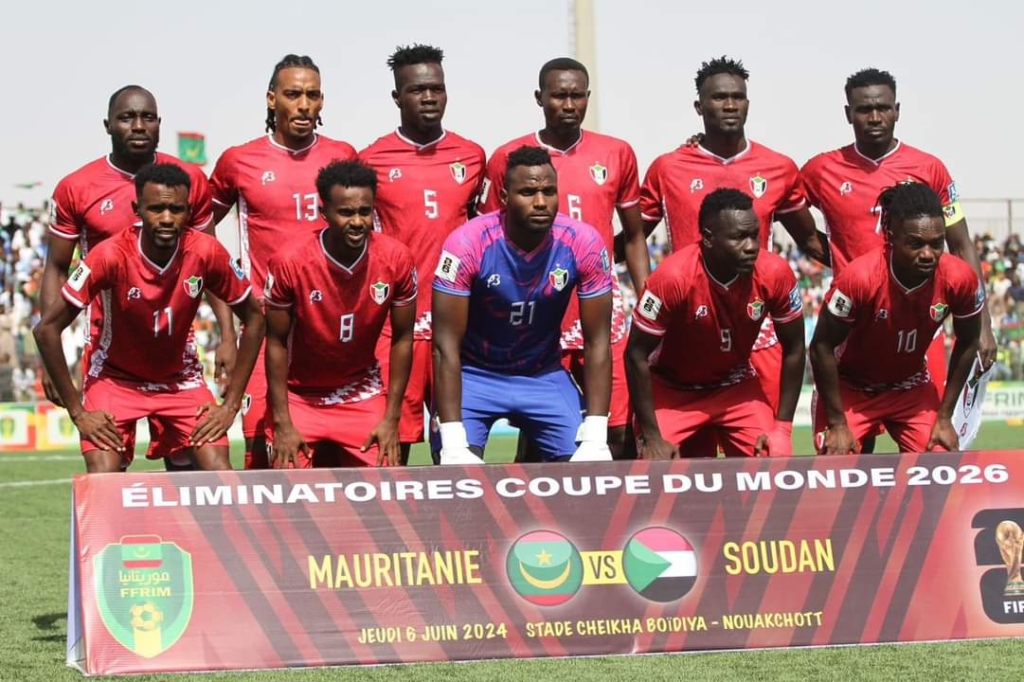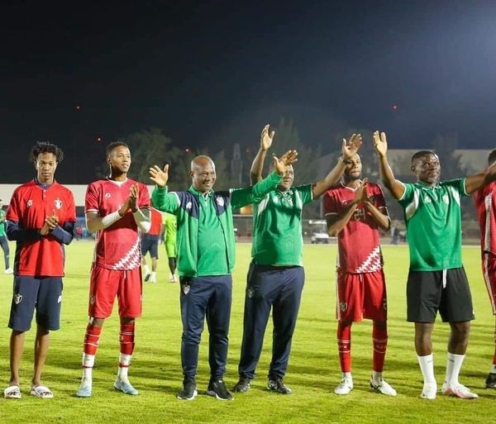Only two Ghanaians — James Kwasi Appiah and Otto Addo — have ever guided the West African nation's senior team to a FIFA World Cup, and both are currently in the race to re-appear at the Mundial when it next takes place in North America in 2026.
Addo, head coach during Ghana's last World Cup appearance two years ago, is back to the post after some 15 months out following the end of the country's participation in that tournament. He took charge of Ghana's two most recent qualifiers, winning both, to get the Black Stars back on track after the team stumbled out of the blocks with just three points from the first six on offer.
Those victories, against Mali and the Central African Republic (CAR) in the week just past, have lifted Ghana to second, joint on points (9) with Group I leaders Comoros — but that's still a little lower than the standards of Appiah's Sudan, who are top of Group B after the same number of matches.
Appiah, who was in charge when Ghana booked its place at the 2014 Mundial, has only been with the Falcons of Jediane some nine months, but he has already overseen quite the transformation. Sudan had lost three games in a row before Appiah took the reins, as part of a longer run of miserable results, but the former Ghana and Asante Kotoko left-back has turned it all around in some style.

Sudan have only lost one international under his watch — a friendly with Guinea-Bissau in March, the reverse of which they'd won just days earlier — and although progress has been manifest on several fronts, it is in the World Cup qualifiers that the most obvious strides have been made.
For a team that has never been to a World Cup, Sudan are cruising quite comfortably in the latest campaign. An opening draw at home to Togo wasn't the most positive start, but Sudan have since won every game — one as hosts of the DR Congo and, more recently, back-to-back away victories over Mauritania and neighbours South Sudan.
The tally of ten points those results have added up to is as much as any team has in the qualification series. It has them ahead of more fancied group-mates Senegal, and though Sudan are yet to face the Lions of Teranga, Appiah would be quietly confident about his team's chances when they welcome Aliou Cisse's 2021 African champions in March next year for the first of their two potentially decisive duels.
That's enough time and breathing space to plot and to scheme, with Sudan enjoying a two-point advantage — only powerhouses Egypt (Group A) and Morocco (Group E) hold healthier leads at this stage — and Appiah, no stranger to taking on and holding his own against elite opposition, would certainly be up for the challenge.

In a sense, Appiah was the piece Sudanese football had long missed.
The country has always had the blocks required for building a successful national team. Its domestic game is dominated by Omdurman giants Al Hilal and Al Merreikh, between whom all Sudan Premier League titles since 1993 have been split, creating an intense rivalry which has even been contested on the continental stage.
That duopoly has also opened up a pool of players familiar with each other and who share a strong winning mentality. The coaching expertise to make it all come together successfully is what the country has not had enough of over the years — but that's just what they seem to have found in Appiah, a manager they've pursued for a while.
It goes way back to the time, between 2014 and 2017, when Appiah was trainer of Al Khartoum, one of the Sudanese top-flight’s less illustrious sides. But only after Appiah returned to his homeland for another stint at the helm of the Black Stars, and then took a three-year sabbatical from top-level management, did he finally end up accepting the Sudan job.
The 63-year-old and his team have had to work in some difficult conditions, with Sudan currently in the throes of a ravaging civil war that started over a year ago and shows no signs of ending anytime soon. Yet even during a period that has seen the Sudanese people find little comfort elsewhere, the national side has been an oasis of delight.
Appiah's appointment has, thus far, proved worth the wait; the long-term effects, on and off the pitch, may be even more impactful.
Latest Stories
-
Vasseur questions ‘strange momentum’ of Formula One race director change
3 mins -
“I am disappointed in Kojo Manuel” – Merqury Quaye on “no tie” comment
3 mins -
Nana Kwame Bediako; The beacon of unity
6 mins -
Western Region: NDC youth wing embarks on phase 2 of ‘retail campaign’
32 mins -
Action Chapel International holds annual Impact Convention in November
32 mins -
Jana Foundation urges young women to take up leadership roles
37 mins -
All set for Joy FM Prayer Summit for Peace 2024
48 mins -
Managing Prediabetes with the Help of a Dietitian
1 hour -
Joy FM listeners criticise Achiase Commanding Officer’s election comment
1 hour -
Legal Aid Commission employees threaten strike over poor working conditions
2 hours -
Ghana ranked 7th globally as biggest beneficiary of World Bank funding
2 hours -
IMF board to disburse $360m to Ghana in December after third review
2 hours -
Former Bono Regional NPP organiser donates 13 motorbikes to 12 constituencies
2 hours -
Securities industry: Assets under management estimated at GH¢81.7bn in quarter 3, 2024
2 hours -
Gold Fields Ghana Foundation challenges graduates to maximise benefits of community apprenticeship programme
3 hours

